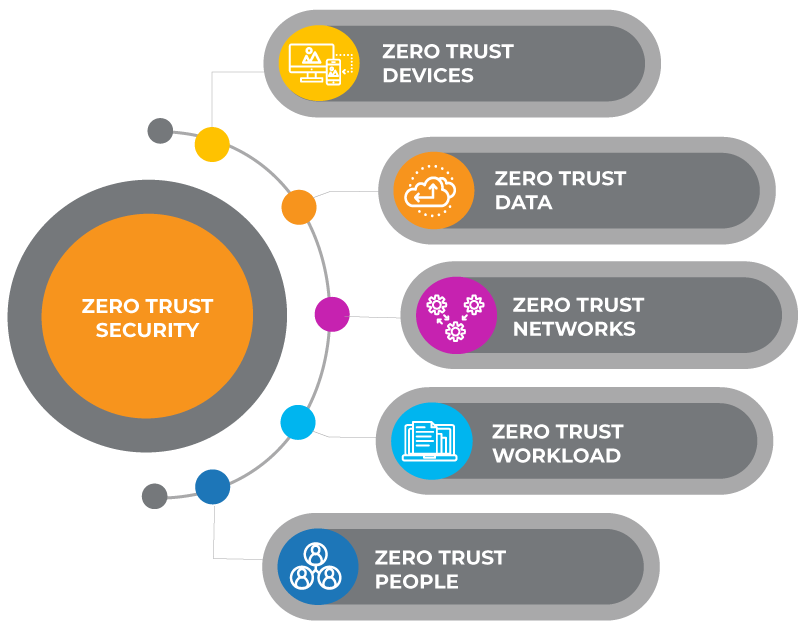Ensuring Cybersecurity Resilience: A Deep Dive into Zero-Trust Security for Automotive Manufacturing
Ensuring Cybersecurity Resilience: A Deep Dive into Zero-Trust Security for Automotive Manufacturing
- Zero-trust security is crucial for safeguarding modern automotive manufacturing against cyber threats.
- Understanding zero trust principles and implementation can significantly enhance cyberattack resilience.
- Collaborative efforts and cutting-edge technologies are essential for robust cybersecurity in automotive manufacturing.
The Importance of Zero-Trust Security in Automotive Manufacturing

Resilient cybersecurity measures are paramount when automotive manufacturing increasingly relies on digital technologies. The zero-trust security model, which operates on the principle of “never trust, always verify,” is particularly effective in protecting against modern cyber threats. This model shifts the focus from perimeter-based defenses to a more robust framework that constantly monitors, authenticates, and authorizes every device, user, and action within and outside the network. This proactive approach eliminates implicit trust, significantly reducing the risk of security breaches.
Examining real-world applications can illuminate zero-trust security’s critical role in automotive manufacturing. For instance, Fortinet’s work with Chinese automotive manufacturers demonstrates how adopting a zero-trust framework can safeguard sensitive manufacturing data and operational technologies. Such strategic implementations are vital in mitigating risks and ensuring the continuous operation of manufacturing processes. Automobile manufacturers can create a more secure and resilient production environment by integrating zero-trust principles, enhancing operational integrity and reliability.
Implementing Zero-Trust Security: Core Principles and Practices

Successfully implementing zero-trust security in automotive manufacturing involves adhering to several core principles. These include:
- Least Privilege Access: This principle ensures that users and systems have the minimum access to perform their tasks. By limiting access rights and permissions, it minimizes the potential impact of compromised credentials.
- Micro-segmentation: Dividing the network into smaller segments to limit the scope of any potential breach. By creating isolated segments, attackers’ lateral movement within the network is restricted, containing the spread of malicious activity.
- Continuous Monitoring and Verification: Applying real-time monitoring and contextual authentication for all network activities. Continuous verification ensures that any suspicious or unauthorized activity is promptly detected and addressed, mitigating the risk of a successful cyberattack.
- Multi-Factor Authentication (MFA): Requiring multiple verification steps before granting access to sensitive systems. MFA improves security by including an additional layer of verification, making it more challenging for hackers to obtain unauthorized entry.
- Incident Response: Developing and maintaining a robust incident response plan to address potential security breaches swiftly and effectively. A well-defined incident response plan ensures appropriate actions are taken to contain and remediate security incidents, minimizing their impact on operations.
When meticulously applied, these principles help create a comprehensive and resilient security posture that protects against internal and external threats. Automotive manufacturers increasingly adopt these practices to ensure their production lines remain secure, efficient, and operational.
Integrating zero-trust principles into security frameworks enhances overall cybersecurity resilience, providing a robust defense against evolving cyber threats.
Benefits of Zero-Trust Security in the Automotive Industry
The automotive industry benefits significantly from implementing zero-trust security due to its tailored critical advantages. Foremost among these is the heightened protection of intellectual property, essential in an industry driven by innovation and competitive differentiation. Zero-trust security minimizes the risk of corporate espionage and intellectual property theft, safeguarding valuable assets and fostering innovation by ensuring that only approved individuals can reach crucial intellectual assets.
Additionally, zero-trust security enhances the overall operational efficiency of automotive manufacturing. Continuous monitoring and verification processes protect against unauthorized access and provide valuable insights into network performance and potential vulnerabilities. This heightened visibility can improve maintenance protocols and more efficient resource allocation. Manufacturers can optimize their operations and reduce downtime by proactively identifying and addressing security weaknesses.
Another significant benefit is the improved capability to handle adherence to regulatory requirements effectively. The automotive industry is subject to stringent cybersecurity regulations, and zero-trust security frameworks provide a structured approach to meeting these requirements, reducing the risk of non-compliance penalties. Manufacturers can earn the trust of customers and stakeholders through compliance with regulations and showing dedication to solid cybersecurity measures.
The Future of Zero-Trust Security in Automotive Manufacturing
The future of zero-trust security in automotive manufacturing is promising, driven by continuous technological advancements and an increasing focus on cybersecurity. Zero-trust security will become integral to manufacturing strategies as the industry moves towards more excellent connectivity and automation. The growing prevalence of connected devices and IoT technologies in manufacturing environments necessitates a robust approach to cybersecurity, ensuring that all devices and endpoints are securely managed and monitored.
It is anticipated that zero-trust frameworks will be significantly improved by the rise of advanced technologies like artificial intelligence (AI) and machine learning. These technologies can provide more sophisticated threat detection and response capabilities, further bolstering the resilience of manufacturing systems. AI-powered security solutions can instantly examine large volumes of data, detecting trends and irregularities that could signal potential cyber risks. Manufacturers can improve their capacity to identify and address security incidents by utilizing AI and machine learning technology.
Zero-trust security, with its focus on continuous verification and micro-segmentation, is well-suited to meet the demands of this new industrial paradigm. As manufacturers embrace digital transformation, zero-trust security will be essential in protecting their critical infrastructure and ensuring the security and integrity of their operations.
Collaborative Efforts in Cybersecurity
The collaborative nature of cybersecurity efforts cannot be understated. Automotive manufacturers, cybersecurity firms, and regulatory bodies must work together to develop and implement adequate security measures. These collaborations enable the sharing best practices, threat intelligence, and innovative solutions, contributing to a more secure and resilient industry. By fostering partnerships and alliances, organizations can enhance their collective cybersecurity capabilities and address emerging threats more effectively.
Working closely with industry leaders helps develop tailored cybersecurity solutions that address the unique challenges automotive manufacturers face. This collaborative approach ensures that security measures are effective but also practical and scalable. By leveraging the expertise of cybersecurity firms, manufacturers can strengthen their defenses and enhance their overall security posture.
Furthermore, industry-wide initiatives and standards are crucial in promoting cybersecurity resilience. Participation in forums, working groups, and regulatory discussions allows automotive manufacturers to stay informed about emerging threats and evolving best practices, fostering a proactive and adaptive security posture. By engaging in collaborative efforts and contributing to developing industry standards, manufacturers can drive continuous improvement in cybersecurity practices and ensure the protection of their critical assets.
















